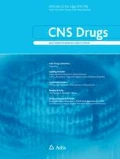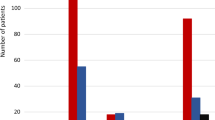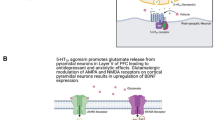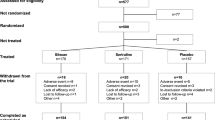Abstract
Objective: To examine the factors that contribute to the occurrence of the discontinuation syndrome in patients who have received paroxetine to treat depression.
Method: The clinical records of individuals from the outpatient units of two centres in the western area of Japan who had had a single episode of major depressive disorder (MDD) and had completed monotherapy with paroxetine in the previous 5 years were retrospectively reviewed. All patients had been diagnosed with MDD according to the DSM-IV criteria. The patients were divided into two groups, according to whether or not they had experienced the discontinuation syndrome when paroxetine was stopped. The syndrome was diagnosed according to standard criteria for the SSRI discontinuation syndrome. The two groups were compared for sex, age, maintenance dosage of paroxetine, duration of treatment with paroxetine, presence of adverse reactions in the early phase of treatment with paroxetine, and method of paroxetine withdrawal (abrupt or tapered).
Results: Of the 385 patients included in the review, 41 patients experienced the discontinuation syndrome. The occurrence of the discontinuation syndrome did not correlate with sex, maintenance dosage of paroxetine or duration of treatment with the drug. However, there was a relationship between the method of drug withdrawal and the occurrence of the discontinuation syndrome, with the syndrome occurring significantly more frequently in those patients in whom paroxetine was abruptly discontinued. There was an association between the occurrence of the discontinuation syndrome and age, but this association seemed to have been caused by the fact that younger patients were more inclined to abruptly stop taking the medication. It was also found that the discontinuation syndrome occurred at a significantly higher rate in patients who had experienced adverse reactions to paroxetine in the early phase of treatment.
Conclusion: The discontinuation syndrome in patients taking paroxetine was more likely to occur in those patients who stopped taking the drug abruptly. The occurrence of the discontinuation syndrome was also correlated with younger age, but this association seemed to be secondary to the fact that younger patients tended to be more likely to abruptly stop taking the medication. It appears that the discontinuation syndrome can be prevented by carefully tapering the dosage of paroxetine when treatment is withdrawn. Interestingly, the discontinuation syndrome was more likely to occur in those patients who experienced adverse reactions in the early phase of treatment with paroxetine. When the drug is discontinued, additional attention should be paid to patients who have presented with adverse reactions in the early phase of paroxetine therapy.

Similar content being viewed by others
References
Tamam L, Ozpoyraz N. Selective serotonin reuptake inhibitor discontinuation syndrome: a review. Adv Ther 2002; 19(1): 17–26
Fava GA, Ruini C, Sonino N. Treatment of recurrent depression: a sequential psycotherapeutic and psychopharmacological approach. CNS Drugs 2003; 17(15): 1109–17
Abies AZ, Baughman III OL. Antidepressants: update on new agents and indications. Am Fam Physician 2003; 67(3): 547–54
Olver JS, Burrows GD, Norman TR. Discontinuation syndromes with selective serotonin reuptake inhibitors: are there clinically relevant differences? CNS Drugs 1999; 12(3): 171–7
Black K, Shea C, Dursun S, et al. Selective serotonin reuptake inhibitor discontinuation syndrome: proposed diagnostic crite-ria. J Psychiatry Neurosci 2000; 25(3): 255–61
Lejoyeux M, Ades J. Antidepressant discontinuation: a review of the literature. J Clin Psychiatry 1997; 58Suppl. 7: 11–6
Haddad P. The SSRI discontinuation syndrome. J Psychopharmacol 1998; 12(3): 305–13
Price JS, Waller PC, Wood SM, et al. A comparison of the post-marketing safety of four selective serotonin re-uptake inhibitors including the investigation of symptoms occurring on withdrawal. Br J Clin Pharmacol 1996; 42(6): 757–63
Ditto KE. Discontinuation syndrome: awareness as an approach to prevention. Postgrad Med 2003; 114(2): 79–84
Haddad P. Newer antidepressants and the discontinuation syndrome. J Clin Psychiatry 1997; 58Suppl. 7: 17–22
Therrien F, Markowitz JS. Selective serotonin reuptake inhibitors and withdrawal symptoms: a review of the literature. Hum Psychopharmacol 1997; 12: 309–23
Rosenbaum JF, Fava M, Hoog SL, et al. Selective serotonin reuptake inhibitor discontinuation syndrome: a randomized clinical trial. Biol Psychiatry 1998; 44(2): 77–87
American Psychiatric Association. Diagnostic and statistical manual of mental disorders. 4th ed. Washington, DC: American Psychiatric Association, 1994
Rosenbaum JF, Zajecka J. Clinical management of antidepressant discontinuation. J Clin Psychiatry 1997; 58Suppl. 7: 37–40
Green B. Focus on paroxetine. Curr Med Res Opin 2003; 19(1): 13–21
Golden RN. Selective serotonin reuptake inhibitor elimination half-lives: the long and the short of it. Biol Psychiatry 1998; 44: 75–6
Pyke RE. Paroxetine withdrawal syndrome. Am J Psychiatry 1995; 152(1): 149–50
Schatzberg AF, Haddad P, Kaplan EM, et al. Possible biological mechanisms of the serotonin reuptake inhibitor discontinuation syndrome. J Clin Pharmacol 1996; 42(6): 757–63
Acknowledgements
The authors express their sincere gratitude to Professor Hitoshi Matsumura of the University of East Asia, Yamaguchi, Japan, for his advice and guidance in revising the manuscript.
The authors have no conflicts of interest that are directly relevant to the content of this study and no sources of funding were used to assist in conducting the study.
Author information
Authors and Affiliations
Corresponding author
Rights and permissions
About this article
Cite this article
Himei, A., Okamura, T. Discontinuation Syndrome Associated with Paroxetine in Depressed Patients. CNS Drugs 20, 665–672 (2006). https://doi.org/10.2165/00023210-200620080-00005
Published:
Issue Date:
DOI: https://doi.org/10.2165/00023210-200620080-00005




